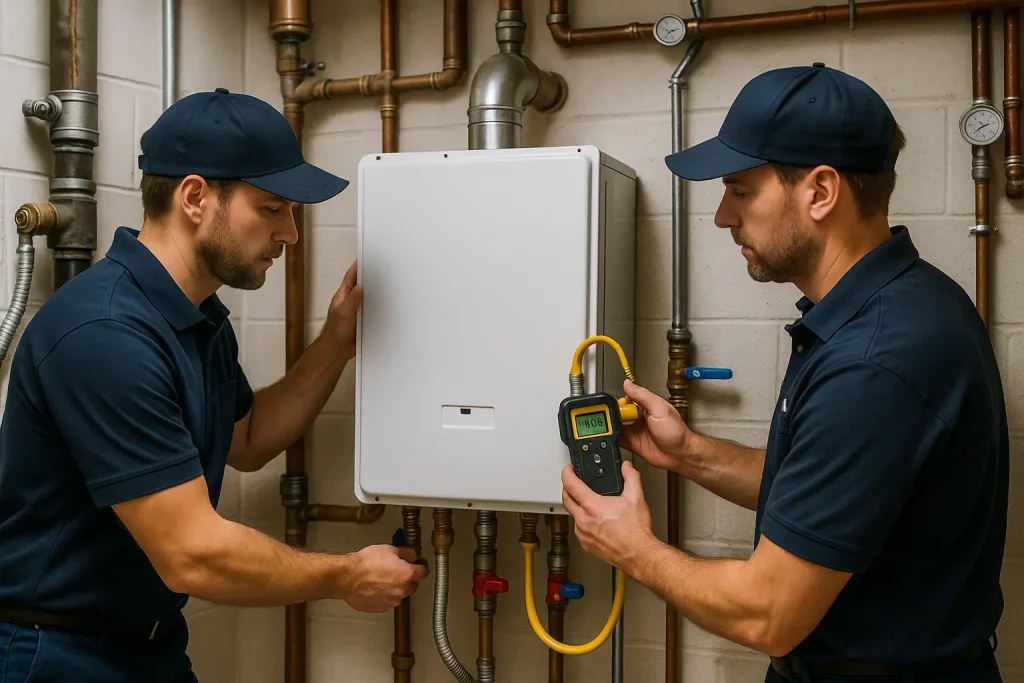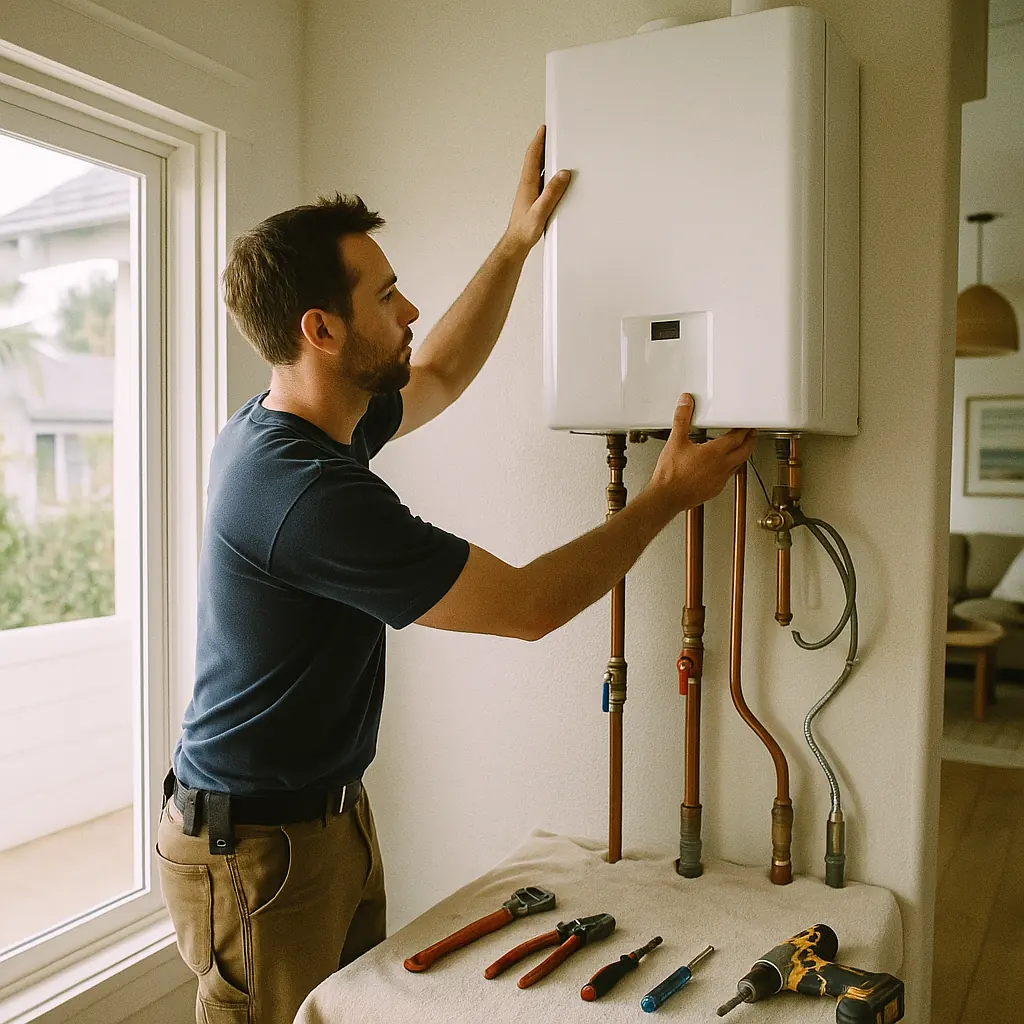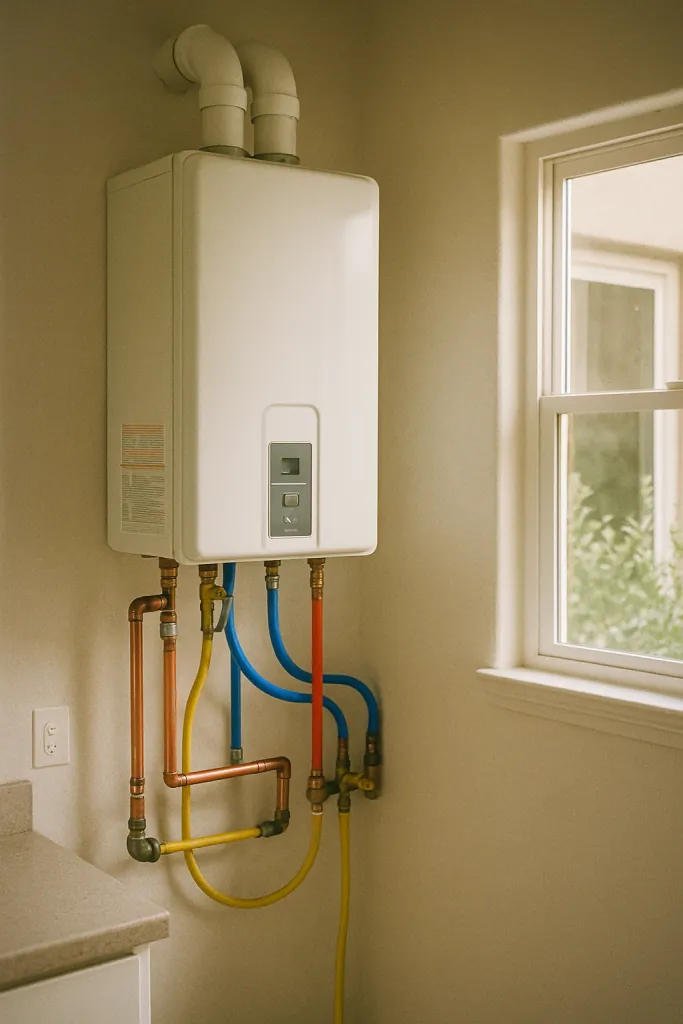
If you’re considering upgrading or replacing your water heater, it’s essential to understand the associated costs to make an informed decision. For a comprehensive guide on pricing, you can visit https://anytimeplumbing.net/new-water-heater-cost/. The cost of a new water heater varies depending on several factors, including the type of system, size, fuel source, and the complexity of installation. Knowing what to expect can help you budget effectively and choose a water heater that fits your household’s needs.
Types of Water Heaters and Their Costs
Storage Tank Water Heaters
Traditional storage tank water heaters are the most common option and are generally the most affordable. These units store a large volume of hot water, ensuring it’s available whenever needed.
- Electric Storage Tank Water Heaters: These units typically cost between $400 and $1,200. When you factor in installation, the total can range from $800 to $2,000. Electric tanks are popular for their simplicity and reliability, with an average lifespan of 8–12 years.
- Gas Storage Tank Water Heaters: Gas models tend to be slightly more expensive, with unit costs from $500 to $1,500. Installation can bring the total to $1,000–$2,500. Gas water heaters are highly efficient, especially for homes with high hot water demand, and have similar lifespans of 8–12 years.
Tankless Water Heaters
Tankless water heaters, often called on-demand systems, heat water only when you need it. This approach eliminates standby energy loss and saves space.
- Electric Tankless Water Heaters: Costs range from $500 to $1,500, with total installed prices between $1,200 and $3,500. Electric tankless heaters can last 15–20 years and provide hot water on demand, making them an energy-efficient choice.
- Gas Tankless Water Heaters: These are slightly more expensive, with unit costs of $750–$2,000 and total installed costs of $1,650–$4,500 or more. Gas tankless units also have a long lifespan of 15–20 years and are excellent for larger households that require a steady supply of hot water.

Hybrid / Heat Pump Water Heaters
Hybrid or heat pump water heaters are highly energy-efficient. They use ambient air to heat water, which can significantly lower electricity bills.
- Hybrid/Heat Pump Units: Prices range from $1,200 to $2,500 for the unit alone, with installation costs bringing the total to $2,500–$6,500. These water heaters have a lifespan of 12–15 years and offer both energy savings and environmental benefits.
Solar Water Heaters
Solar water heaters use renewable solar energy to heat water. While they have higher upfront costs, they provide significant long-term savings on energy bills and are environmentally friendly.
- Solar Water Heaters: Unit prices range from $3,000 to $7,000, with total installation costs between $4,000 and $10,000. Solar water heaters typically last 15–20 years and are ideal for households aiming to reduce their carbon footprint.
Additional Costs to Consider
Several factors beyond the unit and installation cost can influence the total expense:
- Labor Costs: Hiring a professional ensures the installation is safe, efficient, and compliant with local codes. Labor costs vary by region and installation complexity.
- Permits and Inspections: Some municipalities require permits and inspections, which may add to your overall cost.
- Upgrades to Plumbing or Electrical Systems: Older homes may need updated plumbing or electrical work to support a new water heater, which can increase the total expense.

Long-Term Savings and Benefits
While water heaters require a significant upfront investment, considering long-term savings is crucial:
- Energy Efficiency: Tankless and hybrid water heaters are more efficient than traditional tanks, reducing energy bills over time.
- Maintenance: Regular maintenance extends the lifespan of your water heater and prevents costly repairs.
- Incentives and Rebates: Some regions offer tax incentives or rebates for energy-efficient models, helping offset initial costs.
Choosing the Right Water Heater
Selecting the right water heater involves balancing upfront costs, long-term savings, and household needs. Consider your family size, hot water usage patterns, and energy efficiency goals. While a high-efficiency tankless or hybrid unit may cost more initially, it can save money on energy bills and require fewer replacements over time.
Conclusion
Investing in a water heater is a long-term decision that impacts comfort, convenience, and energy bills. By understanding the various types of water heaters, associated costs, and potential savings, you can make an informed choice that meets your household’s needs. For detailed pricing and guidance. A properly selected and installed water heater ensures reliable hot water for years while optimizing energy efficiency and cost-effectiveness.


